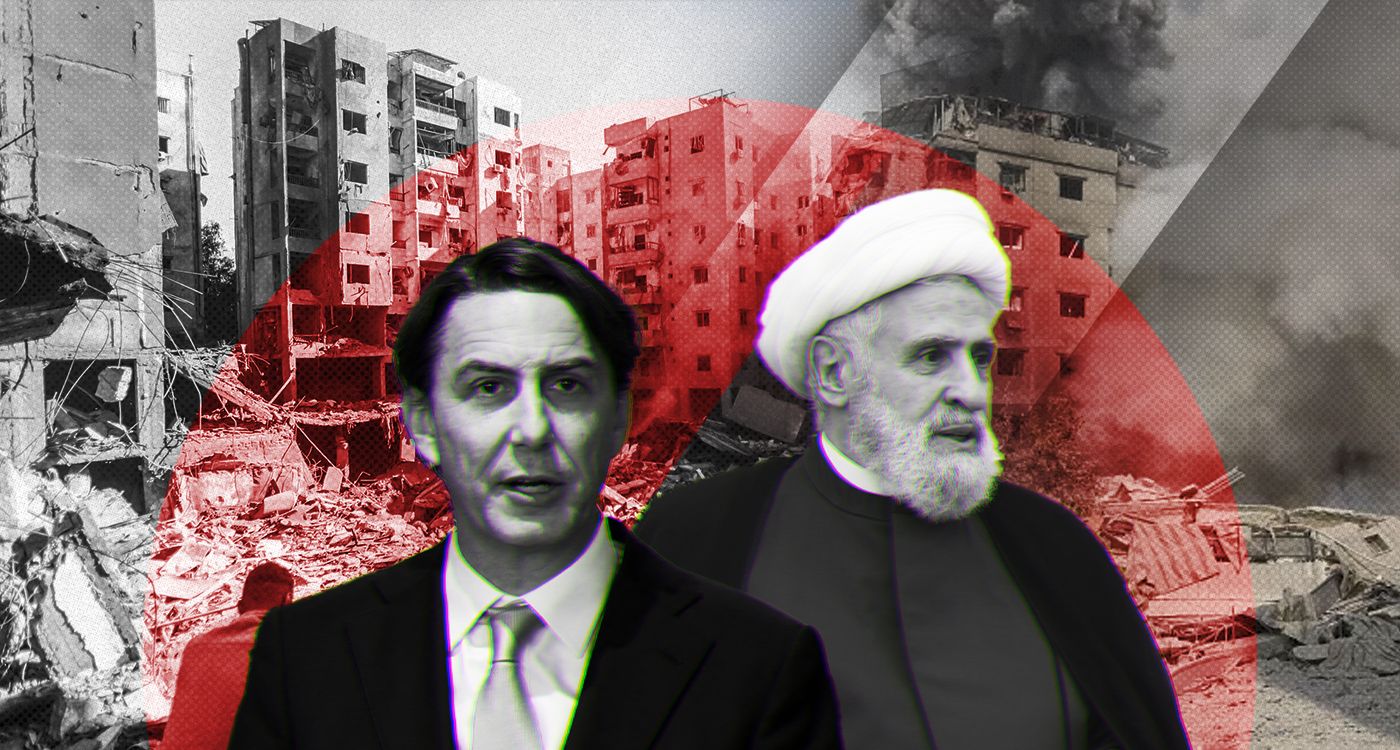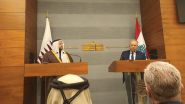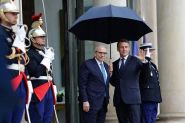
US envoy Amos Hochstein traveled to Tel Aviv late Wednesday afternoon to convey the outcomes of his Beirut discussions to Israeli Prime Minister Benjamin Netanyahu—on Thursday, according to Reuters—regarding the American proposal for a ceasefire agreement.
Hochstein declined to elaborate on the progress of his talks with Parliament Speaker Nabih Berri, who has been tasked by Hezbollah to “negotiate” on its behalf concerning the implementation of the proposed truce plan. He made this clear following his second visit to Ain el-Tineh on Wednesday. Similarly, sources close to Berri remained tight-lipped, merely acknowledging “progress” in the talks.
It should be stated upfront: Amos Hochstein’s visit is not to renegotiate Washington’s proposed plan but to focus on its implementation details. Lebanese input on specific aspects will be central to his discussions with Benjamin Netanyahu.
The nuance is important because it refutes those who still believe that the pro-Iranian faction, weakened and leaderless after leading the country into a destructive war, is in a position to impose its terms for a ceasefire. While Hezbollah continues to assert that it maintains its military capabilities on the ground, these have clearly reached their limits, and the price has become excessively high—for the group, its supporters, and Lebanon as a whole.
The mediation currently being led by the US envoy is virtually a last chance, regardless of Hezbollah’s warnings. The new Hezbollah leader, Sheikh Naim Qassem, reiterated on Wednesday that Israel “will not be able to take, through an agreement, what it failed to achieve on the ground.” However, his room for maneuver remains very limited for two reasons: First, because Israel remains determined to achieve its war objectives, including neutralizing Hezbollah. And second, because the US roadmap is simply “take it or leave it.” Amos Hochstein subtly conveyed this to his interlocutors, according to sources who spoke to This is Beirut and closely followed his meetings in the Lebanese capital, including his two near-two-hour discussions on Tuesday and Wednesday with Berri.
According to these sources, the discussions centered on details that do not affect the overall goals of the plan, as it is non-negotiable. “The Lebanese side sought to modify a word here and there, but in essence, its flexibility is limited,” the sources stated.
The main outlines of the US roadmap, which is centered on the implementation of UN Security Council Resolution 1701, are largely known. The plan essentially calls for Hezbollah's withdrawal to the north of the Litani River, strict border controls to prevent the flow of arms that could enable the group to rebuild its arsenal, and the presence of international observers to oversee the enforcement of Resolution 1701. This resolution also mandates the deployment of additional military units, alongside UNIFIL, in the southern Litani region.
According to the same sources, the army's task will be to dismantle what remains of Hezbollah's paramilitary structure, ensuring that southern Lebanon becomes a demilitarized zone. In line with its mandate, UNIFIL will be authorized to intervene wherever it suspects the presence of arms caches. This mission is part of a four-step plan that is set to be implemented once a ceasefire is declared. Israel, prioritizing the security of the population in the border villages with Lebanon, places particular emphasis on this plan.
The details of the demilitarization process, which were apparently discussed at length by Berry and Hochstein, remain largely unknown. Hezbollah’s response on this matter is also unclear, though the pro-Iranian group has already expressed its willingness to withdraw north of the Litani River and comply with the provisions of Resolution 1701, on the condition that Israel also strictly adheres to the resolution. Hezbollah has also categorically rejected any continued Israeli presence south of the Litani once a ceasefire is declared. However, Tel Aviv insists on having the freedom and flexibility to oversee the implementation of this resolution, a demand that Lebanon has refused. Israel's Defense Minister, Yoav Gallant, reiterated this stance yesterday.
Furthermore, the same source indicated that the solution may lie in having international observers take on this mission. However, nothing is certain at this stage, given the rigidity of both the Israeli and Hezbollah positions, which undermines the prospects for a ceasefire in the near future.
According to a political source, the presence of international observers could meet Lebanon’s demands, which oppose any Israeli involvement in the matter, while also addressing Tel Aviv's need to safeguard its northern borders. "What is certain is that returning to the situation in southern Lebanon before October 7, 2023, is no longer a viable option," the aforementioned source stated.
According to unconfirmed reports from official sources, the Israeli military is expected to maintain its presence at certain locations in southern Lebanon, pending the completion, or at the very least, significant progress of the region’s demilitarization process. This remains a significant point for Lebanon.
All these issues, along with Lebanon’s concerns, will be discussed in Tel Aviv, as Lebanon holds its breath beneath the shadow of a deceptive truce.




Comments